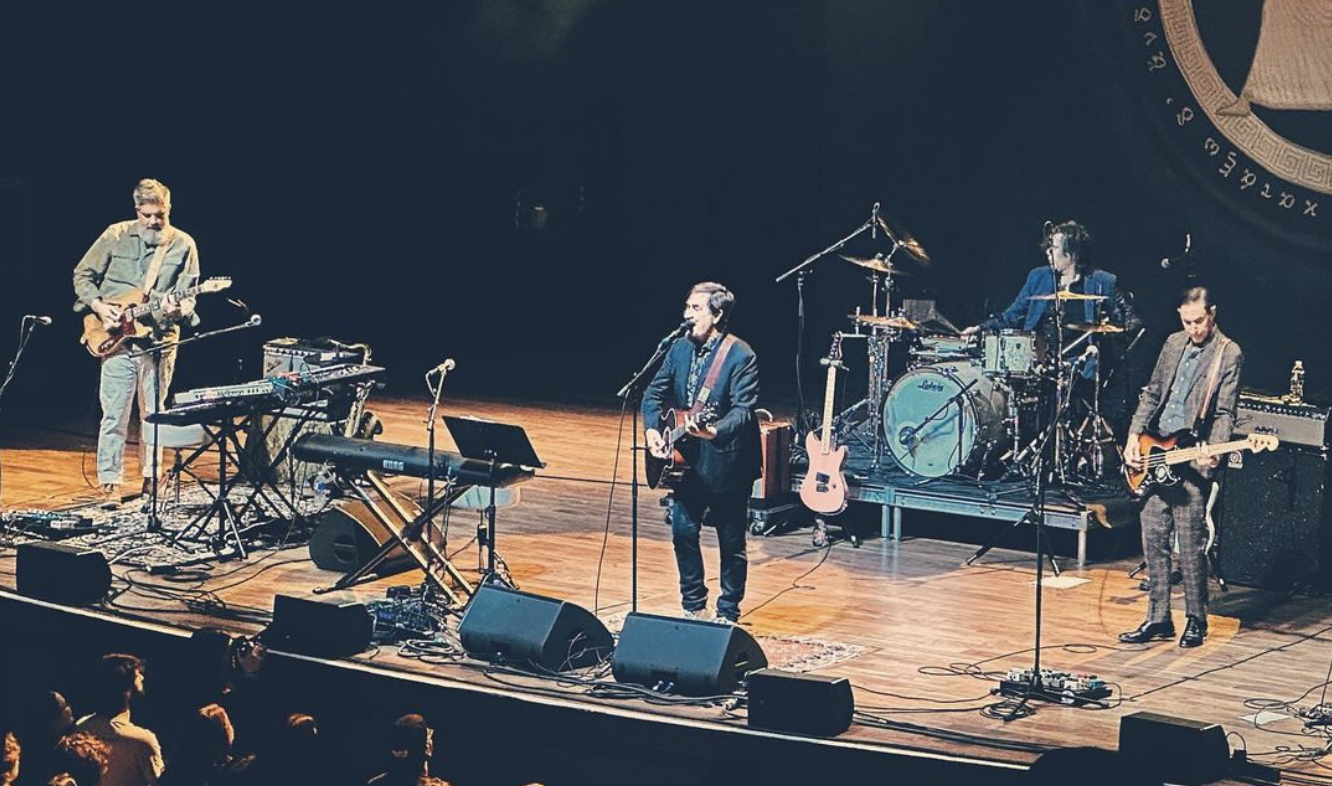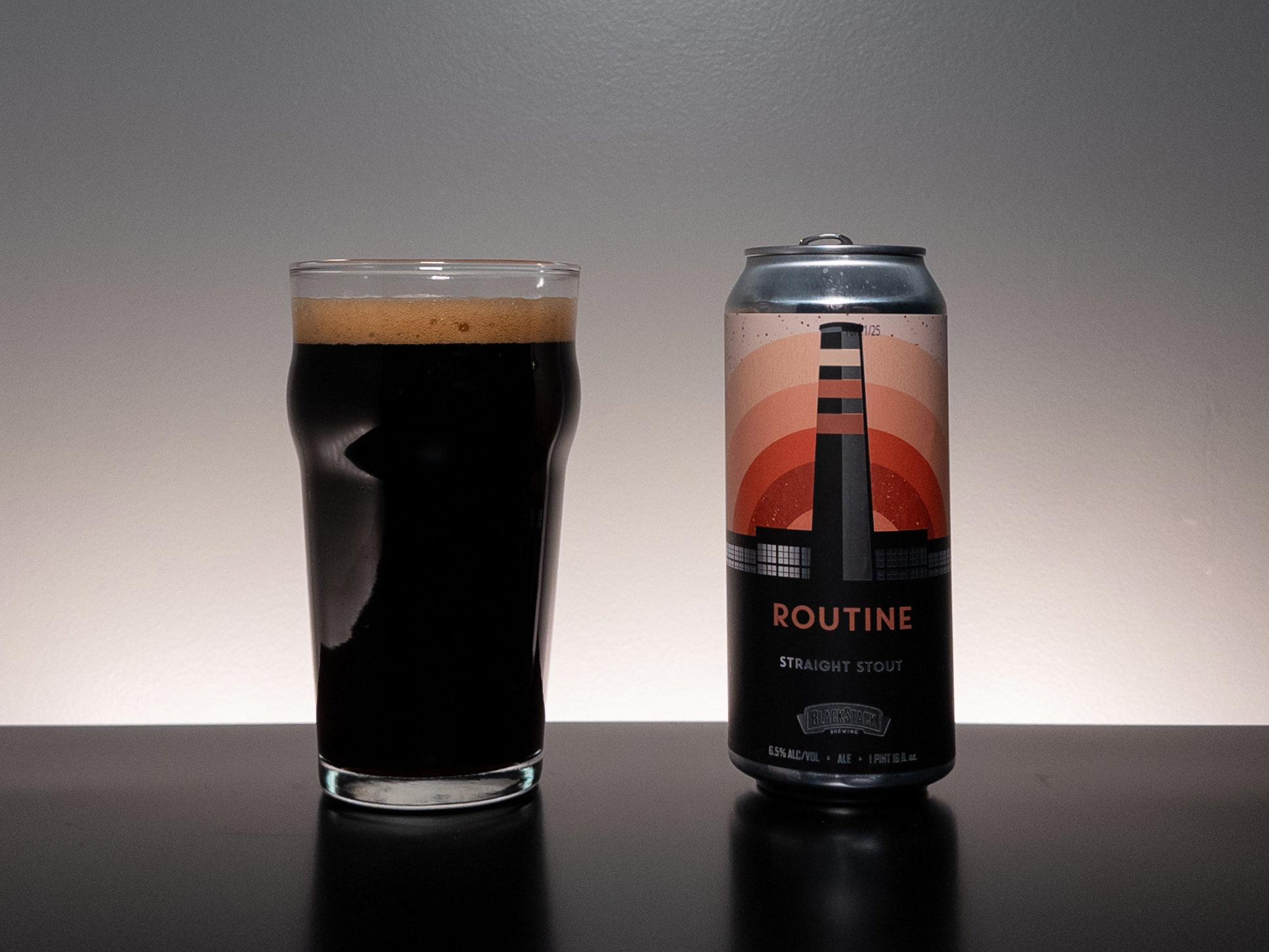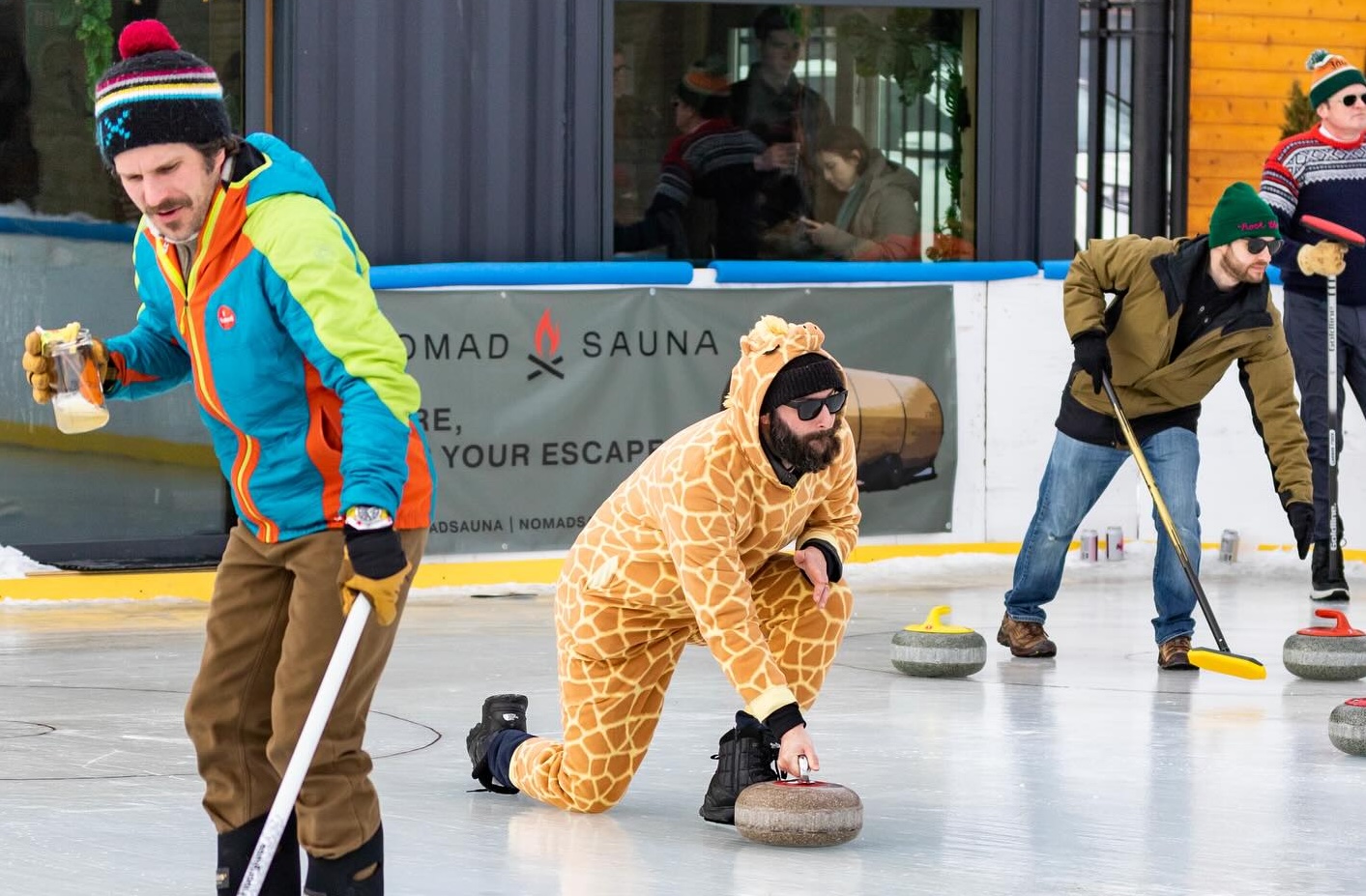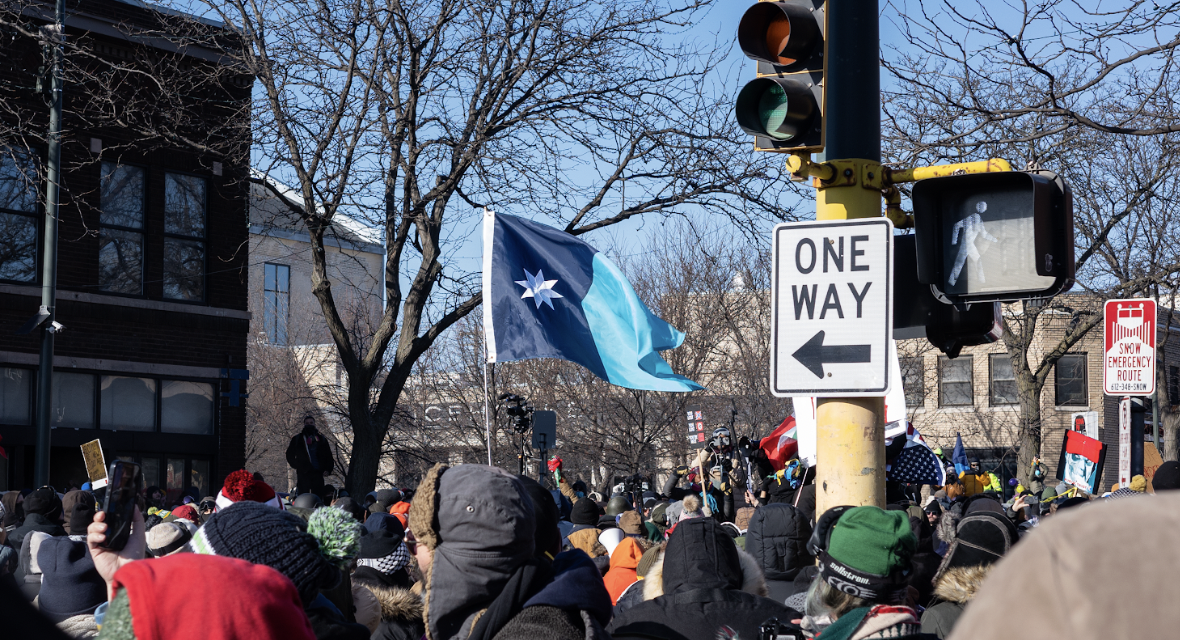I didn’t have to pee about midway through the Mountain Goats show at St. Paul's Palace Theatre last Friday night. But I didn’t exactly not have to either, and a stroll to the bathroom seemed like a good excuse to stretch my legs—those balcony seats can be a little economy-class tight, even for the stubby among us.
I’m glad I ventured out, and not just because “go when you can” is as good a piece of advice at 54 as it is when you’re seven or eight. Had I held it, I wouldn’t have heard how resonant and crisp “Jenny III” sounded out in the Palace’s spacious hallways. Credit the century-old building’s sturdy stone bones for some of the reverberation, and the folks running sound, of course.
But credit the five-piece for executing such smart arrangements as well. As I listened from the stairwell, Matt Douglas’s piano chords rang out, landing one to the measure, and Isa Burke’s eerie and forlorn fiddle sawed as though making itself overheard from a short distance away. Bassist Peter Hughes’s inventive lines locked in with the hard-hitting nuance of Jon Wurster’s drums, and as ever John Darnielle’s voice keened sharply above the music.
“She did/Long before we did,” Darnielle sang softly if assuredly if obliquely about Jenny, the title character of the latest Mountain Goats album, last October's Jenny From Thebes, and of several Mountain Goats songs before that. Through the years, Darnielle has slowly silhouetted the outlines of this imagined woman, establishing her as a persistent rumor of a person, a sort of acquaintance of a friend of an acquaintance, with concrete details scarce besides the fact that she operates a safe house of sorts in west Texas (all hail!) for the less settled types that generally populate Darnielle’s work.
Most of all, credit Darnielle for growing into the role of bandleader so capably. His days of declaiming and heavy strumming into a boombox are decades behind him now, yet even those of us who don’t romanticize those raw origins have to recognize how essential to his mystique as a performer they remain. There’s something solitary about that voice, even when others harmonize, making it an ideal vehicle for the thoughts of Darnielle’s loners, and something almost Biblical in its demand to be heard and heeded as well.
Yet his band’s contributions have become integral to the songs, to their meaning as well as to their structure—sure, Darnielle could sing ’em solo, and sometimes does. But Darnielle’s commitment to collaboration, to gathering musicians around him to enrich his work, in the studio and live, rather than settling for standard “singer + accompaniment,” adds a social dimension to music that might otherwise feel forbiddingly private.
The Mountain Goats opened with a song from those early solo days, 1994’s “Azo Tle Nelli In Tlalticpac.” The spare acoustic chop of the Zopilote Machine version spread out into a full-band vamp before Darnielle, in sports coat and sneakers, bounded out onto the stage to share “good news—like a rare blood disorder.” While it’s unfair to call the original recording a demo, or to imagine that Darnielle could have heard this fuller arrangement at the time, the performance did feel true to the song, as though the seeds for its expansion had lay dormant from the start.
With the addition of Burke, who spent most of the night on guitar (and is also a welcome dilution of the Goats’ boys’ club spirit) Darnielle was freed up to contribute to the band’s sound as he saw fit. He sometimes plinked out a few chords on a synth, occasionally picked up an electric or acoustic guitar (even soloed on “Sicilian Crest”), grabbed a tambourine of course, and took over Douglas’s keyboard mid-song on “Only One Way” so the bearded multi-instrumentalist could switch to sax.
The often chatty Darnielle limited himself to succinct but perfect introductions and transitions that night. “This is a song about a murder at the 18th Street garage—it’s called "Murder at the 18th St. Garage," he said, and it sure was; he followed that with “That song only has one dead body in it but this one has many more” by way of introducing “Extraction Point.” “This takes place in the land where our liberties we prize, and our rights we will maintain” is how he introduced “Waylon Jennings Live!,” congratulating a few cheer-ers for apparently recognizing the Iowa state motto. Perhaps best of all: “Like so many songs in the American tradition about people who pass out and have visions, this song is called ‘Bell Swamp Connection.’”
Darnielle was a little more talkative by necessity when tuning, a necessity when you bang as hard as he does. When someone called out “Yes! More tuning!” Darnielle immediately responded “Ah, a Grateful Dead fan.” But I’d expected a little more interaction when, midway through the night, the band took a break and Darnielle performed a quick solo set of three “perilously old songs.” ("Against Agamemnon," "Island Garden Song," and "Horseradish Road, because you know you want to know.) While the songs stood up, the moment seemed intense and brief—not exactly rushed, but a little context from the singer wouldn’t have hurt.
As a writer, Darnielle accumulates details so richly you feel like you know what’s going on even without a narrative thread, but it takes his singing, more supple than it sounds at first, to animate the lyrics. His voice avoids monotony but leans on familiarity, and it’s gained authority, or trust, over the years. Dude has the gift of vocal righteousness, and whether lines are pregnant with insinuation (“You’ve done something awful/I’ve done something worse”) or just find unexpectedly musicality in an ordinary phrase like “International money orders,” they take on unexpected significance.
For a late-set change of pace, the band jaunted through “Only Takes a Few,” written by late Rent composer Jonathan Larson, a “new-wave” (per Darnielle) track that the band recorded for the soundtrack to Tick, Tick... Boom!, the 2021 Lin-Manuel Miranda film adaptation of Larson’s semi-autobiographical stage musical. It’s easy to hear why Darnielle would fall for a lyric like "It's called 'quintessence,'" I said/She stared at an Oreo cookie in black and white/After water, earth, air and fire/The fifth and highest play,” and I personally am now manifesting a full Goats synthpop album.
There’s no one-two gut punch in contemporary rock quite like “No Children” and “This Year,” the stirring twofer that ended the Goats’ set. Darnielle introduced the former with a yarn about driving through Iowa on I-90 in 2001 and hearing Lee Ann Womack’s then-inescapable “I Hope You Dance” on the radio. “I knew I needed to write an answer song and it had to be as brutal as possible,” he said, after performing a bit of the relentlessly inspirational ballad. The song that resulted, "No Children" turns “I hope you die/I hope we both die” into a dark affirmation of human will, but more importantly it’s fun as hell to shout along with as part of a crowd.
As for “This Year,” let me just shout out the woman who’d been seated for the rest of the show but leapt to her feet and boogied as though possessed, which in a way she was. What else do you need to know?
For their encore, the Goats’ mixed more ruminative cuts like the late-night highway reverie “The Slow Parts of Death Metal Songs” and the elaborate simile-fest “International Small Arms Traffic Blues” (“Our love is like the border of Greece and Albania”) with rockers like the action-antihero-debunking “First Blood” (“Paul Kersey never left his apartment/John Rambo never went to Vietnam”) and the paranoid hell-is-other-junkies nightmare “Palmcorder Yajna” (“If anybody comes into our room while we're asleep/I hope they incinerate everybody in it"). I’ve restrained myself from over-quoting the guy till now, but I’m only so strong...
As Darnielle led the band through the night’s final song, “Up the Wolves,” which channels Romulus and Remus into a memory of experiencing and (at least when a crowd joins in on the chorus) possibly learning to live with childhood trauma, I studied the giant ancient Greek shield that loomed behind the band. I hadn’t bothered to transcribe its inscription because it was the same as the Jenny From Thebes album art, and anyway I was sure someone on Reddit would have translated the text—such is Darnielle’s fanbase that no clue goes pondered, and they didn’t disappoint me.
Turns out it’s from Seven Against Thebes, reading, in part: “I will bring this man back and he will have his city and move freely in his father's halls,” and if we were playing “Aeschylus or Darnielle?” and you tossed me that line, well I can’t say for sure that I’d have guessed right.
Setlist
Azo Tle Nelli In Tlalticpac
Sicilian Crest
Murder at the 18th St. Garage
Extraction Point
Only One Way
Waylon Jennings Live!
Fresh Tattoo
Against Agamemnon
Island Garden Song
Horseradish Road
Jenny III
From the Nebraska Plant
The Diaz Brothers
Bell Swamp Connection
Cotton
Only Takes a Few
I Hope You Dance/No Children
This Year
Encore
The Slow Parts on Death Metal Albums
First Blood
International Small Arms Traffic Blues
Palmcorder Yajna
Up the Wolves







